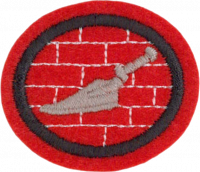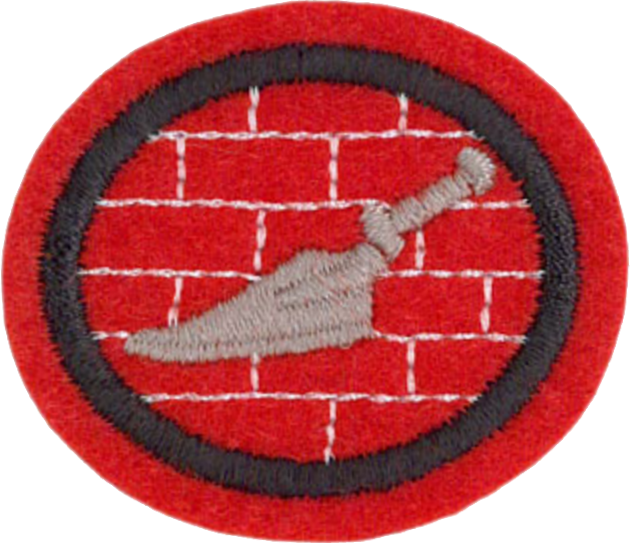Difference between revisions of "AY Honors/Masonry/Requirements/es"
(Created page with "</noinclude>Demostrar la capacidad para utilizar correctamente <noinclude>") |
(Created page with "</noinclude>Una plomada <noinclude>") |
||
| Line 9: | Line 9: | ||
<noinclude></noinclude><section end=req2 /></b> | <noinclude></noinclude><section end=req2 /></b> | ||
| − | :<b>a. <section begin=req2a /><noinclude> | + | :<b>a. <section begin=req2a /><noinclude></noinclude>Una plomada |
| − | </noinclude> | + | <noinclude></noinclude><section end=req2a /></b> |
| − | <noinclude | ||
| − | |||
| − | :<b>b. <section begin=req2b /><noinclude> | + | :<b>b. <section begin=req2b /><noinclude></noinclude>Tensor de línea (piernas de pollo) |
| − | </noinclude> | + | <noinclude></noinclude><section end=req2b /></b> |
| − | <noinclude | ||
| − | |||
:<b>c. <section begin=req2c /><noinclude><div lang="en" dir="ltr" class="mw-content-ltr"> | :<b>c. <section begin=req2c /><noinclude><div lang="en" dir="ltr" class="mw-content-ltr"> | ||
Revision as of 23:50, 18 May 2021
1. Nombrar al menos seis materiales comúnmente utilizados por los albañiles en la construcción de paredes o edificios.
2. Demostrar la capacidad para utilizar correctamente
- a. Una plomada
- b. Tensor de línea (piernas de pollo)
- c.
Level
- d.
Trowel
- e.
S-tool
- f.
Mason's hammer
3.
Demonstrate a knowledge of building cement characteristics (know how to prevent sweating, cracking, shrinking, crumbling, and loss of strength).
4.
Make usable mortar and state proper proportions of ingredients (lime, sand, etc.).
5.
Lay a straight stone, brick, or block masonry wall at least four feet (1.2 meters) high and ten feet (3.0 meters) long, including an inside or outside corner (surface must be struck and broomed).
6.
Pour a level footing, using hand mixed cement and proper reinforcement.
7.
Make the forms and lay a piece of concrete walk or floor, using commercially mixed cement. Finish it and rule it.
8.
Write a paragraph describing the behavior of cement; that is, its reaction to water, its adhesive qualities, how long it takes to set, etc.


